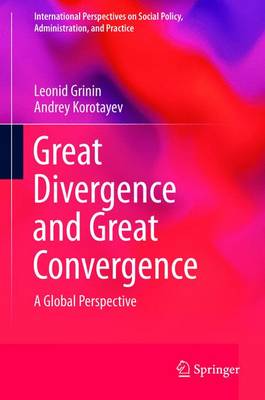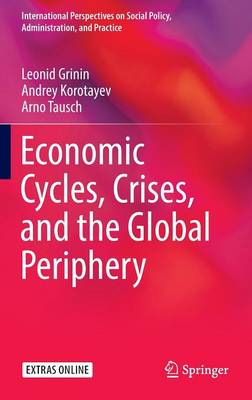International Perspectives on Social Policy, Administration, and Practice
2 total works
Great Divergence and Great Convergence
by Leonid Grinin and Andrey Korotayev
This new monograph provides a stimulating new take on hotly contested topics in world modernization and the globalizing economy. It begins by situating what is called the Great Divergence--the social/technological revolution that led European nations to outpace the early dominance of Asia--in historical context over centuries. This is contrasted with an equally powerful Great Convergence, the recent economic and technological expansion taking place in Third World nations and characterized by narrowing inequity among nations. They are seen here as two phases of an inevitable global process, centuries in the making, with the potential for both positive and negative results.
This sophisticated presentation examines:
Why the developing world is growing more rapidly than the developed world.
- How this development began occurring under the Western world's radar.
- How former colonies of major powers grew to drive the world's economy.
- Why so many Westerneconomists have been slow to recognize the Great Convergence.
- The increasing risk of geopolitical instability.
- Why the world is likely to find itself without an absolute leader after the end of the American hegemony
A work of rare scope, Great Divergence and Great Convergence gives sociologists, global economists, demographers, and global historians a deeper understanding of the broader movement of social and economic history, combined with a long view of history as it is currently being made; it also offers some thrilling forecasts for global development in the forthcoming decades.
Economic Cycles, Crises, and the Global Periphery
by Leonid Grinin, Andrey Korotayev, and Arno Tausch
This thought-provoking monograph analyzes long- medium- and short-term global cycles of prosperity, recession, and depression, plotting them against centuries of important world events. Major research on economic and political cycles is integrated to clarify evolving relationships between the global center and its periphery as well as current worldwide economic upheavals and potential future developments. Central to this survey are successive waves of industrial and, later, technological and cybernetic progress, leading to the current era of globalization and the changes of the roles of both Western powers and former minors players, however that will lead to the formation of the world order without a hegemon. Additionally, the authors predict what they term the Great Convergence, the lessening of inequities between the global core and the rest of the world, including the wealth gap between First and Third World nations.
Among the topics in this ambitious volume:
* Why politics is often omitted from economic analysis.
* Why economic cycles are crucial to understanding the modern geopolitical landscape.
* How the aging of the developed world will affect world technological and economic future.
* The evolving technological forecast for Global North and South.
* Where the U.S. is likely to stand on the future world stage.
Economic Cycles, Crises, and the Global Periphery will inspire discussion and debate among sociologists, global economists, demographers, global historians, and futurologists. This expert knowledge is necessary for further research, proactive response, and preparedness for a new age of sociopolitical change.

